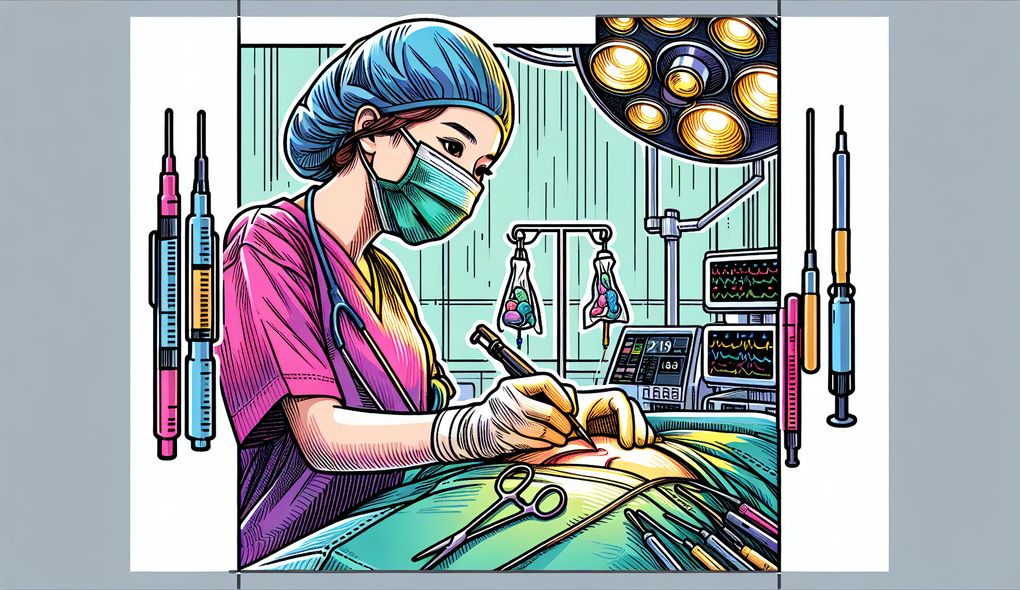How do you approach diagnostic and critical thinking in the context of pediatric surgery?
INTERMEDIATE LEVEL

Sample answer to the question:
When it comes to diagnostic and critical thinking in the context of pediatric surgery, I approach it with a meticulous and systematic approach. I start by carefully reviewing the patient's medical history, conducting a thorough physical examination, and ordering any necessary tests or imaging studies. I then analyze the results, compare them to normal values and previous cases, and formulate a differential diagnosis. I believe in discussing complex cases with my colleagues and seeking their input to ensure the best possible outcome for the patient. Finally, I make evidence-based decisions in collaboration with the patient's family, taking into account their preferences and concerns.
Here is a more solid answer:
In the context of pediatric surgery, my diagnostic and critical thinking skills are honed through years of experience and a commitment to staying current with medical research. I begin by thoroughly assessing the patient's symptoms, medical history, and any available test results. This helps me to develop a comprehensive understanding of the patient's condition and formulate a differential diagnosis. I rely on evidence-based guidelines, medical literature, and consultation with colleagues to ensure the most accurate and effective treatment plan. Collaboration is also crucial in pediatric surgery, and I actively engage with other healthcare professionals to discuss challenging cases and seek their input. Effective communication with the patient's family is essential, and I take the time to explain the diagnosis, treatment options, and potential risks in a compassionate and understandable manner. I believe in fostering a collaborative and supportive environment where all team members feel comfortable sharing their insights and expertise.
Why is this a more solid answer?
The solid answer expands upon the basic answer by providing more specific details and examples of how the candidate approaches diagnostic and critical thinking in the context of pediatric surgery. It also addresses the candidate's collaboration and communication skills, which are important in this role. However, the answer could still benefit from further elaboration and additional examples.
An example of a exceptional answer:
Diagnostic and critical thinking are at the core of my approach to pediatric surgery. I begin by conducting a detailed assessment of the patient, including a thorough review of their medical history, physical examination, and relevant diagnostic tests. This allows me to gather all the necessary information and identify any patterns or abnormalities. I then apply my extensive knowledge and experience to analyze the data and formulate a comprehensive differential diagnosis. Collaborating with my colleagues is crucial, as we often come together to discuss challenging cases and share our insights. I value their input and consider it when making decisions. Effective communication plays a significant role in pediatric surgery, especially when working with the patient's family. I strive to establish open and transparent communication, ensuring that they have a clear understanding of the diagnosis, treatment plan, and potential outcomes. I actively listen to their concerns and provide emotional support throughout the process. Additionally, I continuously update my skills and knowledge through attending conferences, reading medical journals, and participating in relevant workshops. This enables me to stay at the forefront of advancements in pediatric surgery, ensuring that my patients receive the best possible care.
Why is this an exceptional answer?
The exceptional answer provides thorough and detailed insights into how the candidate approaches diagnostic and critical thinking in the context of pediatric surgery. It demonstrates a strong commitment to staying current with medical research and collaborating with colleagues. The answer also highlights the candidate's excellent communication skills, compassion, and dedication to ongoing learning. It goes above and beyond in providing specific examples and showcases the candidate's exceptional qualities.
How to prepare for this question:
- Stay updated with the latest advancements and research in pediatric surgery through reading medical journals and attending conferences.
- Develop strong collaboration and communication skills by participating in team projects and seeking feedback from colleagues.
- Practice critical thinking skills by solving complex medical cases and discussing them with peers.
- Familiarize yourself with common pediatric surgical conditions and their diagnostic and treatment approaches.
What are interviewers evaluating with this question?
- Diagnostic and critical thinking skills
- Collaboration and communication

